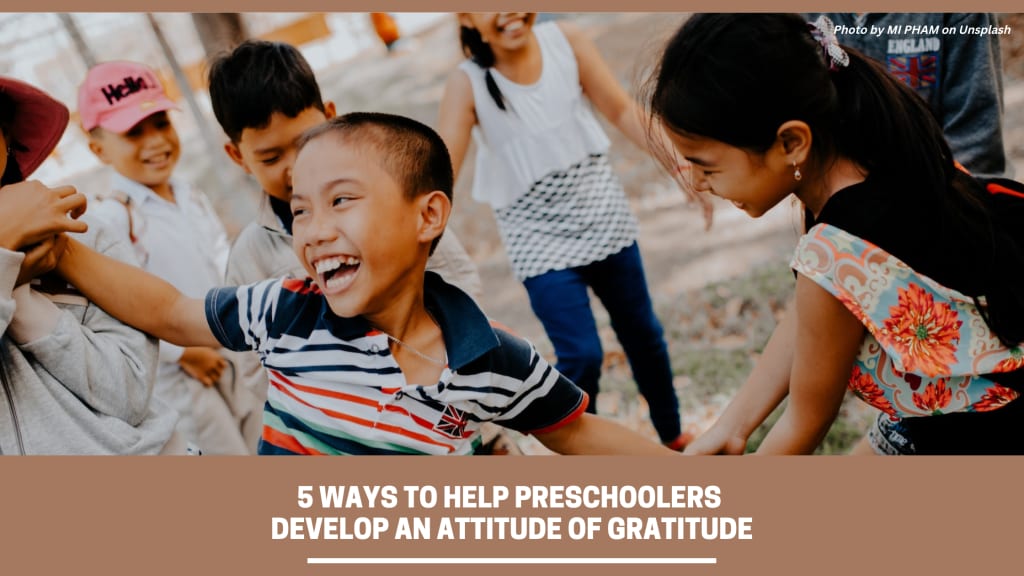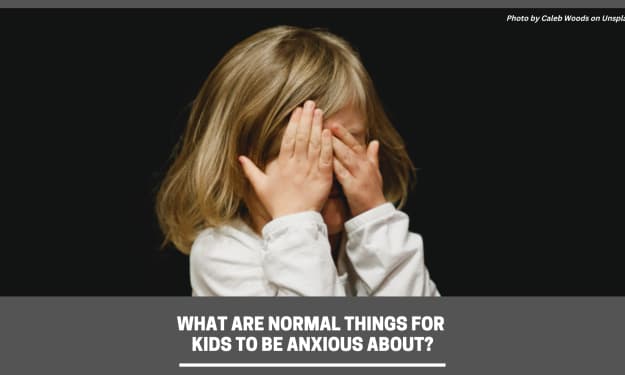5 Ways to Help Preschoolers Develop an Attitude of Gratitude
How do we raise grateful children? Here are a few ideas

Toddlers, it's safe to say, believe the world revolves around them. Every single person who has ever been born began with the belief that they were in charge. We eventually realized that other people mattered as well, and showing and expressing gratitude was one way we stepped outside of ourselves and interacted with others.
Gratefulness, like so many other aspects of life, can be learned. Humans aren't naturally grateful; without direction, we'll be selfish for as long as we can. And, to be honest, you probably just thought of someone in your life who could use a little more "thank you."
Gratitude has health benefits in addition to societal benefits. Recent research has discovered a link between gratitude and happiness in children as young as five. In short, grateful children, who attend a preschool having preschool learning aids grow into happy adolescents and adults.
So, how do we raise grateful children? Here are a few ideas.
Be the example.
Like most other childhood behaviors, children learn gratitude best when they see it demonstrated by their parents. If your child is being selfish and ungrateful, show them what it looks like to be grateful. (One of the best ways to do so is to express gratitude!) And there is no such thing as starting too young. The more frequently they witness acts of kindness and gratitude, the more they will internalize it and incorporate it into their normal thought pattern. Read!
Find a way for your family to express gratitude on a regular basis. Go around the table and make a list of three things for which everyone is thankful. If it's easier to do it while driving, go ahead and do it. If you have older children, you can have everyone in the family sit down on Saturday or Sunday mornings and write a thank you note on a piece of paper, which you can then deliver during the week. Personalize this ritual so that it is enjoyable for everyone and fits your family's style and schedule.
Assist them in experiencing EVERY aspect of gratitude.
Researchers discovered four components of gratitude. Unfortunately, most parents are only concerned with what their children do to express gratitude. ("Thank you!" or "Give a hug to Grandma for bringing you that toy!") Experts advise broadening that practice by asking children questions that...
- Assist them in recognizing the things for which they can be thankful.
- Make them reflect on the ways in which others have been generous to them.
- Recognize how giving and receiving makes them feel.
- Allow them to be disappointed.
Kids are still learning how to regulate their emotions, and disappointment is a particularly difficult one to manage.
If your child, who attends a preschool having teaching materials for preschool is under the age of two, don't expect them to express gratitude when they don't get what they want. Explain the concept of gratitude to them and ensure they say thank you, but don't expect them to be overjoyed.
Keep your expectations in check for older children. They may be more adept at expressing gratitude, but dealing with disappointment remains difficult. Don't mistake them for ungrateful — they're just kids! Instead, assist them in processing their feelings. When they succeed, make a big deal out of it and emphasize how well they handled the situation.
Finding ways to be thankful in both good and bad times is a valuable skill to teach your children. It's never too late (or too early) to start instilling gratitude in as many different ways as possible in their daily routine. It may not be something they are aware of, but it is something they will be grateful for in the long run.
About the Creator
Amit Kumar
Full-time thinker & part-time writer...






Comments
There are no comments for this story
Be the first to respond and start the conversation.